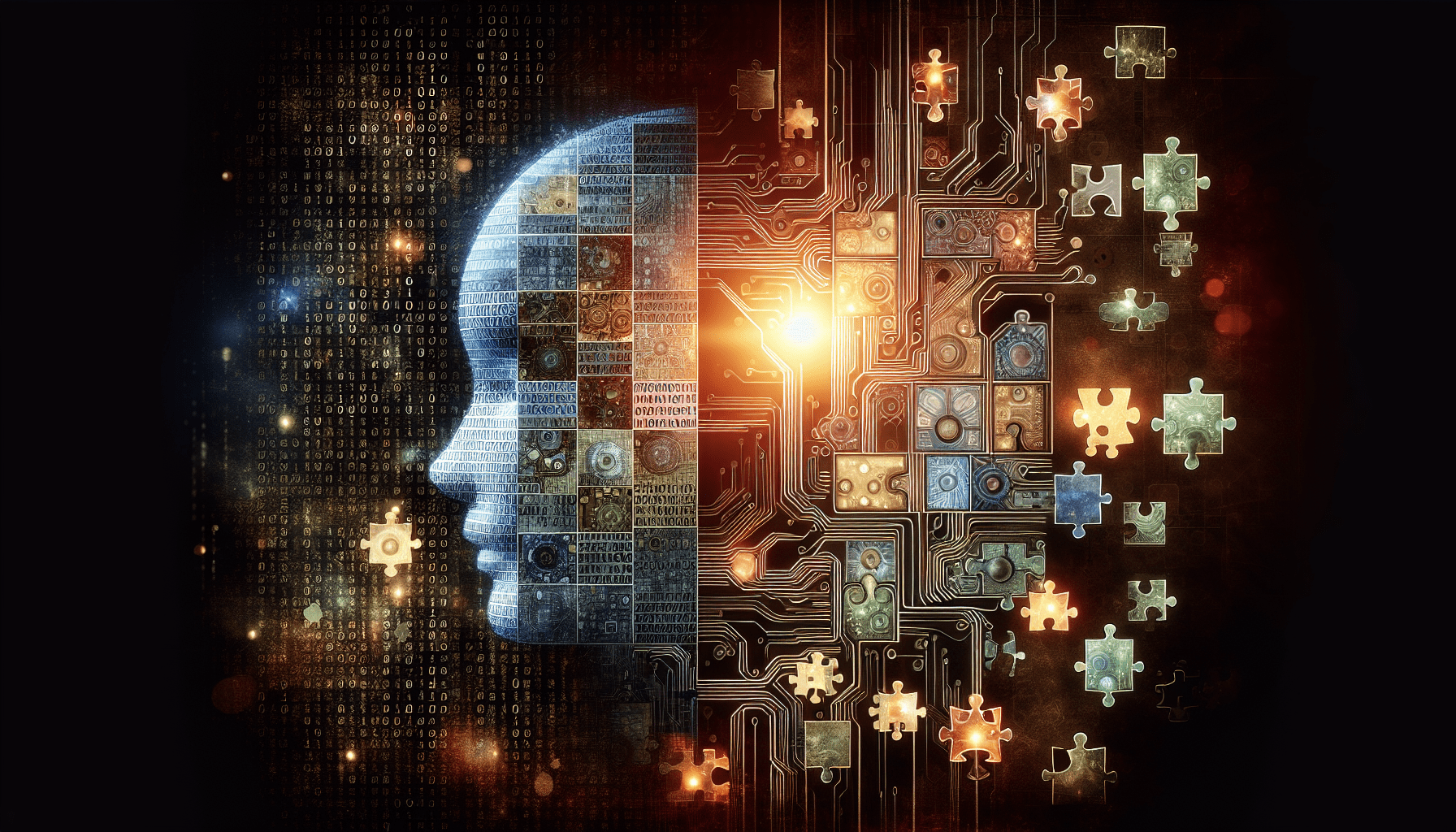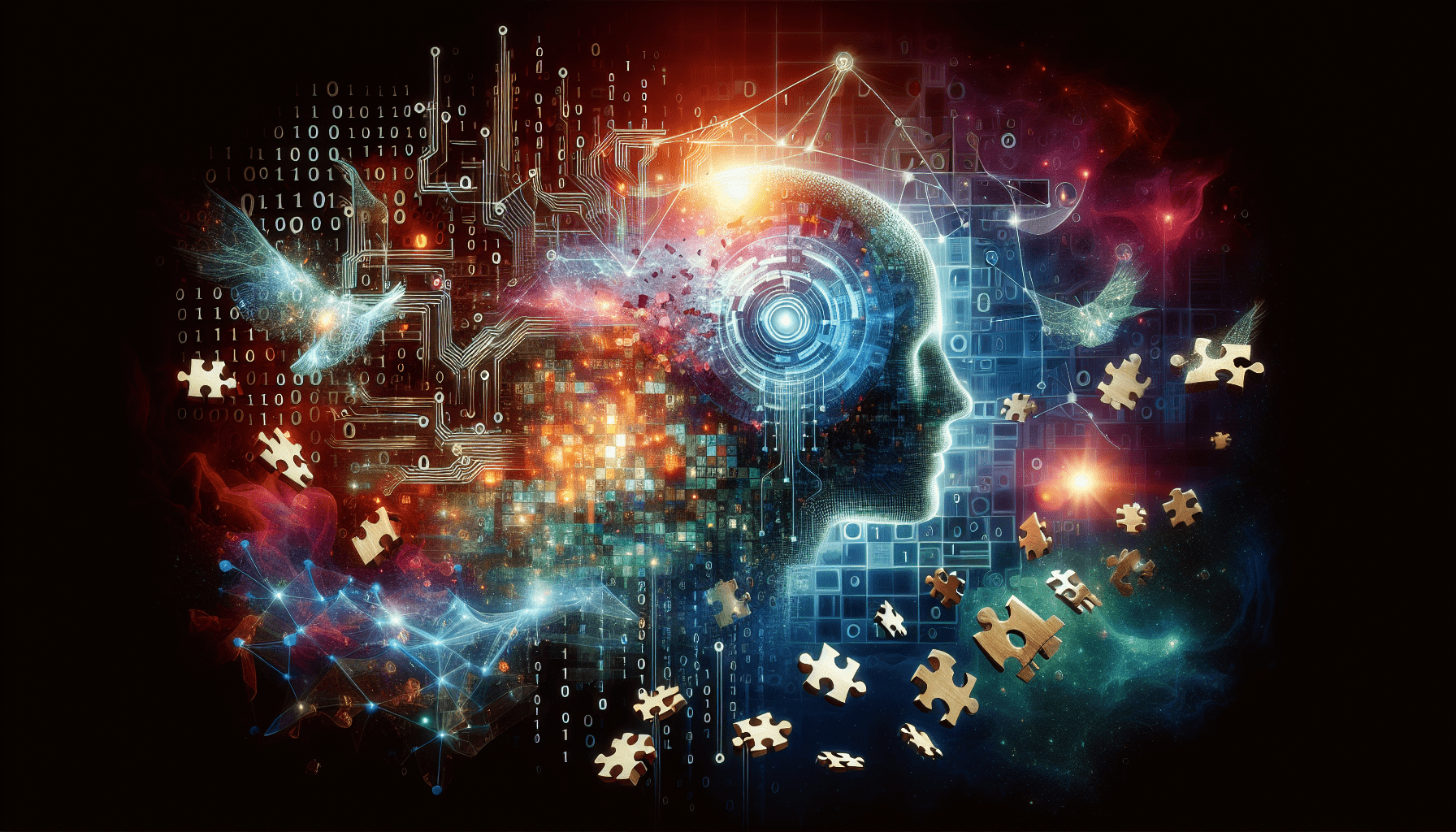Have you ever wondered what exactly artificial intelligence (AI) entails? If you’re new to the world of AI, fear not – this handbook is here to demystify it all for you. From how AI works to its applications in various industries, this concise guide will provide you with a beginner-friendly overview of this fascinating field. So buckle up and get ready to unravel the secrets of artificial intelligence!

What is Artificial Intelligence?
Definition of Artificial Intelligence
Artificial Intelligence, often abbreviated as AI, refers to the field of computer science that focuses on creating intelligent machines that are capable of performing tasks that would typically require human intelligence. AI enables machines to acquire knowledge, reason, learn, and adapt to new situations, mimicking human cognitive abilities.
History of Artificial Intelligence
The history of artificial intelligence dates back to the 1950s when researchers began developing the concept of creating machines that could exhibit intelligent behavior. Alan Turing, a British mathematician, played a significant role in laying the foundation of AI with his Turing Test, which aimed to determine whether a machine could exhibit intelligent behavior indistinguishable from that of a human. Throughout the decades, advancements in computing power, algorithms, and data availability have propelled the development of AI technologies.
Types of Artificial Intelligence
Artificial Intelligence can be broadly categorized into two types: Narrow AI and General AI. Narrow AI, also known as Weak AI, refers to systems designed to perform specific tasks, such as speech recognition or image classification. General AI, on the other hand, refers to machines with intelligence comparable to human intelligence, capable of understanding, learning, and performing any intellectual task that a human being can. While General AI remains an aspiration, most of the AI applications we encounter today are examples of Narrow AI.
Applications of Artificial Intelligence
Machine Learning
Machine learning is a subset of AI that focuses on enabling machines to learn from data without being explicitly programmed. By utilizing algorithms and statistical models, machine learning allows systems to improve their performance on a specific task through experience or training with data. Machine learning is widely used in various applications, including spam email filtering, fraud detection, personalization algorithms, and recommendation systems.
Natural Language Processing
Natural Language Processing (NLP) is a branch of AI focused on enabling computers to understand, interpret, and respond to human language. NLP allows machines to analyze text, speech, and other forms of natural language, enabling applications such as virtual assistants, language translation, sentiment analysis, and chatbots. NLP algorithms employ techniques such as text processing, syntactic analysis, and semantic understanding to facilitate human-computer interactions.
Computer Vision
Computer vision involves teaching machines to understand and interpret visual data, similar to how humans perceive and analyze images and videos. Using AI algorithms and deep learning techniques, computer vision enables applications such as facial recognition, object detection, image classification, and autonomous vehicles. Computer vision is revolutionizing industries like healthcare, retail, and manufacturing by automating tasks that were traditionally performed by humans.
Robotics
Robotics is the branch of AI that focuses on creating intelligent machines capable of interacting with the physical world. AI-powered robots combine perception, cognition, and action to perform tasks in various environments. From industrial robots in assembly lines to autonomous drones and humanoid robots, AI is transforming the field of robotics and enabling advancements in areas such as healthcare, agriculture, and exploration.
How does Artificial Intelligence work?
Data Collection and Processing
Artificial intelligence relies heavily on data. Before an AI system can perform a specific task, it needs access to a sufficient amount of relevant data. This data can come from a variety of sources, including sensors, databases, and user interactions. The data is then collected, cleaned, and processed to ensure its quality and relevance for training AI models.
Machine Learning Algorithms
Machine learning algorithms form the backbone of AI systems. These algorithms enable machines to learn patterns and make predictions based on the data they have been trained on. There are several types of machine learning algorithms, including supervised learning (where the model is trained on labeled data), unsupervised learning (where the model learns from unlabeled data), and reinforcement learning (where the model learns by interacting with an environment and receiving feedback).
Training and Testing
To enable machines to learn, AI models need to be trained using training data. During the training phase, the algorithm analyzes the training data and adjusts its internal parameters to minimize errors and improve its performance on the specific task. After training, the model is tested using separate data known as testing data to assess its accuracy and generalization capabilities.
Inference and Decision-Making
Once an AI model has been trained and tested, it can be deployed to make predictions or decisions on new, unseen data. During the inference phase, the trained model takes input data and produces output based on the patterns it has learned. This enables AI systems to perform tasks such as image recognition, speech synthesis, fraud detection, or autonomous driving. The ability to make informed decisions based on past experiences sets AI apart from traditional software programs.
Challenges in Artificial Intelligence
Ethical Considerations
As AI technology continues to advance, ethical considerations become increasingly important. Issues such as the potential misuse of AI, privacy concerns, and fairness in algorithmic decision-making need to be addressed. Ethical frameworks and guidelines are being developed to ensure that AI systems are developed and used responsibly, with a focus on transparency, accountability, and the well-being of society.
Data Privacy and Security
The extensive use of data in AI applications raises concerns about data privacy and security. It is crucial to handle data responsibly, ensuring that individuals’ personal information is protected and only used for the intended purposes. Additionally, AI systems need to be secure from potential attacks or breaches that could compromise the integrity of the system or the privacy of users.
Bias and Fairness
AI systems trained on biased or incomplete data can perpetuate or amplify existing societal biases. It is essential to ensure that AI technologies are fair and unbiased. Efforts are being made to develop algorithms and approaches that address bias and enable transparency in decision-making processes. Developing diverse and inclusive datasets and involving multidisciplinary teams in AI development can help mitigate bias and promote fairness.
Job Displacement
The rapid advancement of AI technology has led to concerns about potential job displacement. As AI systems automate tasks traditionally performed by humans, there is a need to understand the impact on employment and the workforce. While some jobs may be replaced, AI also creates new opportunities for specialization, collaboration, and higher-level tasks. Preparing for the future of work and reskilling the workforce become important considerations in the era of AI.

Benefits of Artificial Intelligence
Improved Efficiency and Productivity
Artificial intelligence has the potential to significantly improve efficiency and productivity across various industries. By automating repetitive tasks and streamlining complex processes, AI systems can free up human resources to focus on higher-value activities. This leads to increased productivity, reduced costs, and improved overall operational efficiency.
Enhanced Decision-Making
AI technologies can provide valuable insights and support decision-making processes. By analyzing vast amounts of data quickly and accurately, AI systems can identify patterns, trends, and correlations that may not be apparent to humans. This empowers decision-makers with data-driven insights, helping them make informed and timely decisions to drive business success.
Automation of Repetitive Tasks
One of the primary advantages of AI is its ability to automate repetitive tasks. By delegating mundane and monotonous tasks to AI systems, humans can focus on more creative, strategic, and critical thinking tasks. Automation not only increases efficiency but also reduces the potential for human error, resulting in improved accuracy and quality of work.
New Opportunities and Innovations
Artificial intelligence opens up new opportunities and enables innovative solutions to complex problems. It allows for the development of groundbreaking technologies like autonomous vehicles, personalized medicine, and smart cities. AI-driven innovations have the potential to revolutionize industries, drive economic growth, and improve the quality of life for individuals worldwide.
Real-life Examples of Artificial Intelligence
Virtual Assistants (e.g., Siri, Alexa)
Virtual assistants, such as Siri and Alexa, are popular examples of AI applications that utilize natural language processing and machine learning. These virtual assistants can understand spoken commands and respond to queries, providing users with weather updates, setting reminders, or even ordering products online.
Recommendation Systems (e.g., Netflix, Spotify)
Recommendation systems powered by AI algorithms are widely used by streaming services like Netflix and music platforms like Spotify. These systems analyze user preferences and behaviors to provide personalized recommendations, allowing users to discover new movies, shows, or songs tailored to their interests.
Self-Driving Cars
Self-driving cars incorporate advanced AI technologies such as computer vision, machine learning, and sensor fusion to navigate and operate autonomously. Companies like Tesla and Waymo are at the forefront of developing autonomous vehicle technology, bringing us closer to a future of safer and more efficient transportation.
Fraud Detection
AI plays a crucial role in fraud detection and prevention in various industries, including finance and e-commerce. By analyzing large volumes of transactional data and detecting patterns that indicate fraudulent behavior, AI systems can help identify and block potential fraud attempts in real-time, protecting businesses and consumers.

Artificial Intelligence in Pop Culture
Movies and TV Shows
Artificial intelligence has been a popular theme in movies and TV shows for decades. Films like “The Matrix,” “AI Artificial Intelligence,” and “Ex Machina” explore the relationship between humans and AI, often depicting scenarios where AI surpasses human capabilities or raises ethical dilemmas.
Books
Numerous books delve into the realm of artificial intelligence. Isaac Asimov’s “I, Robot” and Philip K. Dick’s “Do Androids Dream of Electric Sheep?” ask profound questions about the nature of consciousness and the implications of creating intelligent machines.
Video Games
AI technology plays a fundamental role in video games, powering the behavior of non-player characters (NPCs) and enabling immersive and realistic gaming experiences. Games like “The Sims” and “Half-Life” showcase AI systems that mimic human-like behavior and adapt to player actions.
Getting Started with Artificial Intelligence
Learning the Basics of Programming
To get started with AI, it’s essential to have a solid foundation in programming. Familiarizing yourself with programming languages such as Python, R, or Java will provide you with the necessary skills to understand and implement AI algorithms.
Understanding Algorithms
AI algorithms form the backbone of AI systems. Gaining a fundamental understanding of algorithms, such as decision trees, support vector machines, or deep neural networks, will enable you to comprehend and utilize AI technologies effectively.
Exploring Machine Learning
Exploring machine learning is a crucial step in understanding AI. Familiarize yourself with concepts like supervised learning, unsupervised learning, and reinforcement learning. Experiment with machine learning libraries and frameworks like scikit-learn or TensorFlow to gain hands-on experience.
Experimenting with AI Tools and Libraries
There are numerous AI tools and libraries available that can simplify the development process. Tools like Google’s TensorFlow, Microsoft’s Cognitive Toolkit, or OpenAI’s Gym provide accessible platforms to experiment, build, and deploy AI models. Exploring these resources will help you gain practical experience and discover creative applications of AI.

Current Trends and Future Outlook of Artificial Intelligence
Advancements in Deep Learning
Deep learning, a subset of machine learning, has been at the forefront of recent AI advancements. By utilizing neural networks with multiple layers, deep learning has achieved breakthroughs in image recognition, natural language processing, and data analysis. Ongoing advancements in deep learning algorithms and hardware capabilities are driving AI to new levels of sophistication.
Integration with Internet of Things
The integration of AI with the Internet of Things (IoT) is shaping the future of AI. AI-powered IoT devices collect vast amounts of data and leverage AI algorithms to process and analyze this data in real-time. This integration has the potential to revolutionize industries such as healthcare, smart cities, and transportation.
Ethical and Responsible AI Development
The ethical considerations surrounding AI development continue to gain attention. The focus on transparent, explainable, and ethical AI is driving the adoption of responsible AI practices. Organizations are actively seeking ways to ensure that AI technologies are developed and used in a manner that aligns with societal values and respects individual rights.
Potential Impact on Various Industries
Artificial intelligence has the potential to transform various industries, including healthcare, finance, manufacturing, and transportation. AI technologies can enhance medical diagnostics, optimize financial decisions, automate manufacturing processes, and enable autonomous vehicles. As AI continues to mature, its impact on these industries is expected to be significant and far-reaching.
Conclusion
Recap of Key Learnings
In this comprehensive article, we explored the fascinating world of Artificial Intelligence. We defined AI, delved into its history, and discussed different types of AI. We learned about the applications of AI, including machine learning, natural language processing, computer vision, and robotics. We also discussed how AI works, including data collection and processing, machine learning algorithms, training and testing, and inference and decision-making.
Encouragement to Explore More
Artificial Intelligence is a rapidly evolving field that presents immense opportunities for growth and innovation. As AI technologies continue to advance, there is plenty of room for exploration and experimentation. By developing foundational knowledge, understanding AI challenges and benefits, and experimenting with AI tools, you can embark on an exciting journey into the world of Artificial Intelligence.
Final Thoughts
Artificial Intelligence has the potential to revolutionize the way we live and work. From improving efficiency and productivity to making smarter decisions and enabling new advancements, AI is shaping the future of various industries. As AI technology progresses, it is crucial to address ethical considerations, ensure data privacy and security, promote fairness, and prepare for the evolving job market. With responsible development and responsible use, AI can enhance our lives and create a brighter future.







Leave a Reply